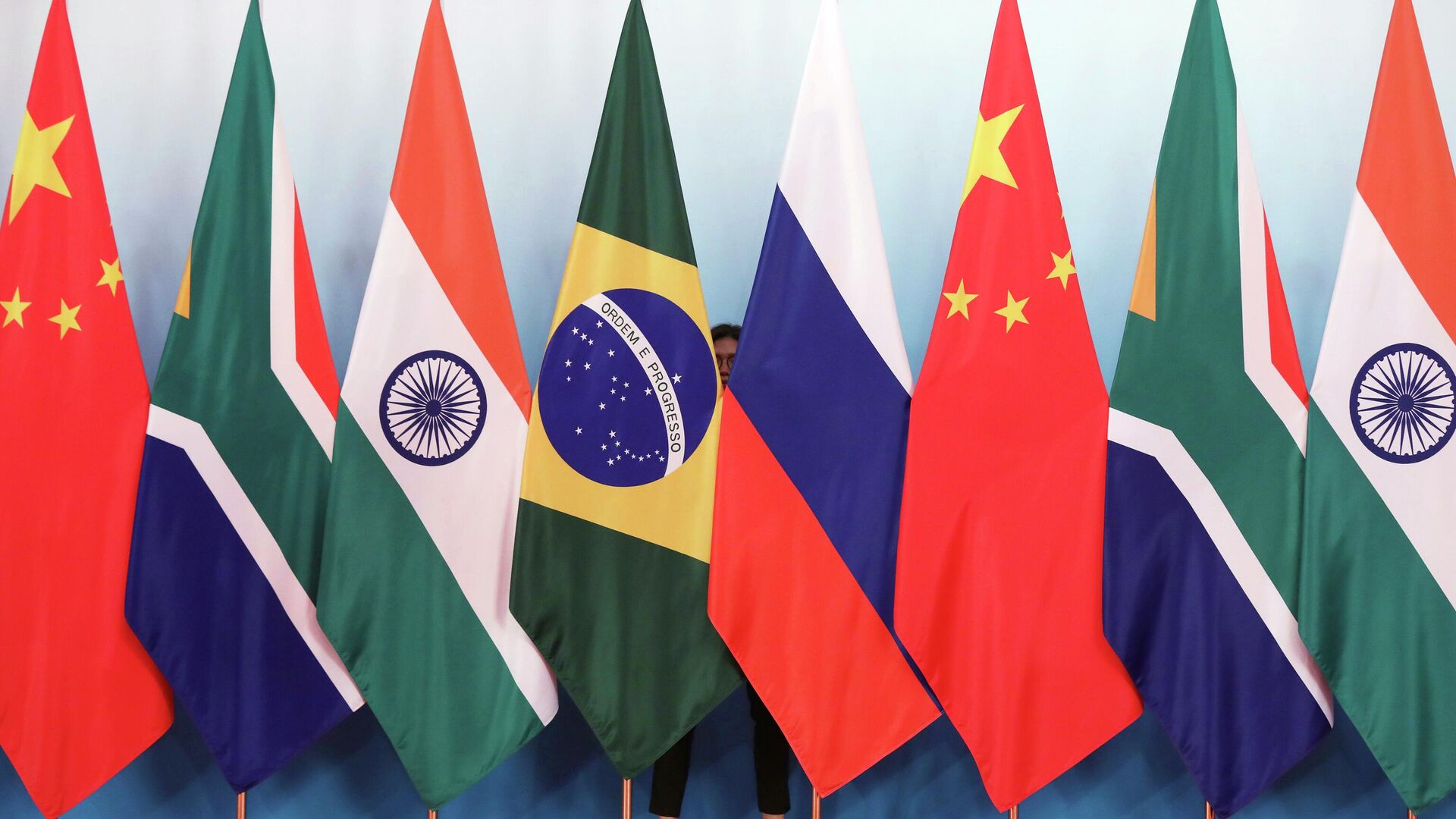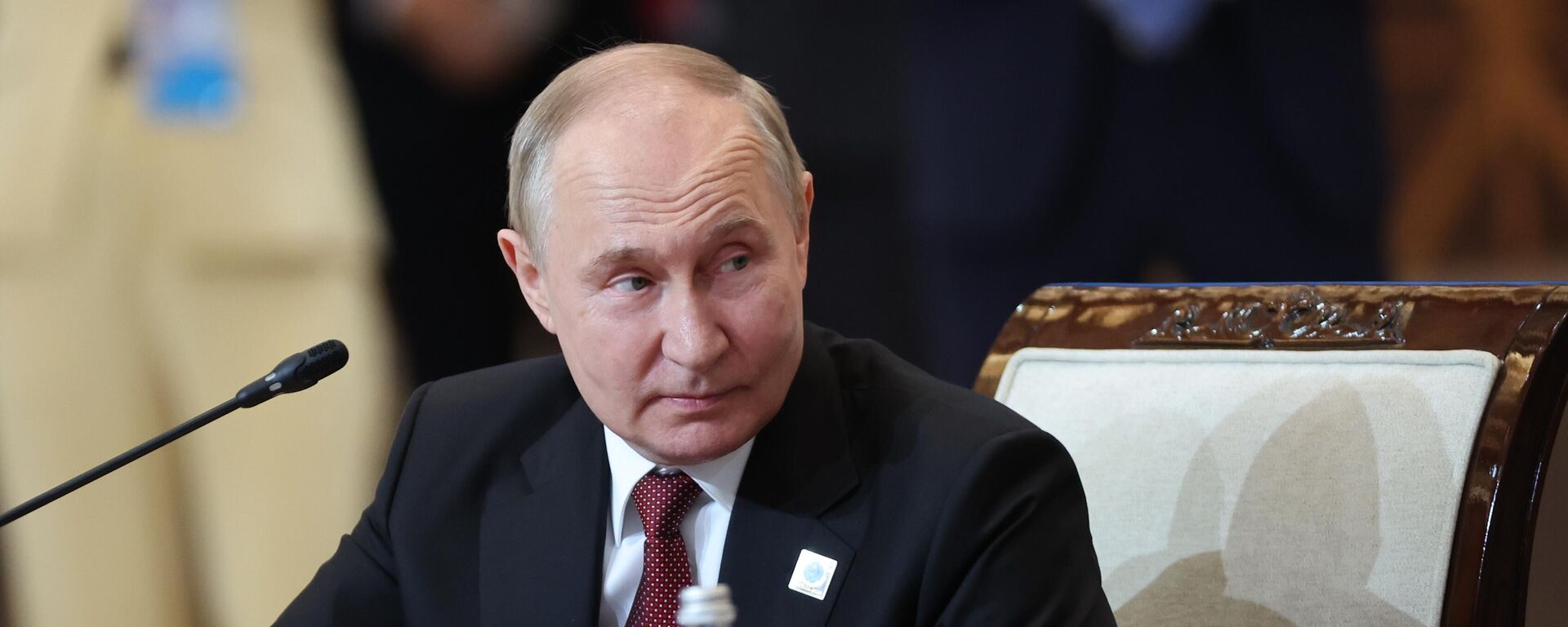https://sputnikglobe.com/20240711/brics-futurological-forum-challenges-western-paradigm-of-history--1119338608.html
BRICS Futurological Forum Challenges Western Paradigm of History
BRICS Futurological Forum Challenges Western Paradigm of History
Sputnik International
On July 10, the Russian State University for the Humanities hosted the opening of the BRICS International Futurological Forum ‘Smart civilization: horizontal connections of BRICS civil society organizations, universities, and innovative companies: the key to shaping a common future’.
2024-07-11T13:13+0000
2024-07-11T13:13+0000
2024-07-11T13:34+0000
russia
russia
russian federation
jawaharlal nehru university
brics
forum
https://cdn1.img.sputnikglobe.com/img/07e7/08/05/1112410418_0:160:3072:1888_1920x0_80_0_0_e9c612a4781f0dd8549316f37f7016a9.jpg
The BRICS futurological forum was attended by more than 500 participants from 20 countries: the representatives of the Ministry of Science and Higher Education of the Russian Federation, experts, scientists, representatives of innovative companies, universities, NGOs and non-governmental organizations from Russia, BRICS countries, the Middle East and the post-Soviet space.International participants of the Forum stressed in their speeches the irreversibility of the change and the multipolar world order based on mutual respect of the identities and interests of states and peoples.Valery Fadeev, Advisor to the President of the Russian Federation, highlighted the need to create ratings to assess the level of civil society and the state of human rights and democracy. He argued that the new world order should take into account the peculiarities of all countries and peoples of the planet.It was also announced that the BRICS Aerospace Club would be established to bring humanitarian cooperation between the BRICS member states in the aviation and space sectors to a new level."There should be no more hegemony of any kind or form," said Santishree Dhulipudi Pandit, Vice-chancellor of Jawaharlal Nehru University in Delhi.Wu Yuhua, Executive President of China's SYIFA Council of Foreign-Invested Enterprises, said BRICS could become the "B20", much more effective and attractive than the G20 group of leading economies.
https://sputnikglobe.com/20240711/putin-speaks-at-10th-brics-parliamentary-forum-in-st-petersburg-1119336357.html
russia
russian federation
Sputnik International
feedback@sputniknews.com
+74956456601
MIA „Rossiya Segodnya“
2024
Sputnik International
feedback@sputniknews.com
+74956456601
MIA „Rossiya Segodnya“
News
en_EN
Sputnik International
feedback@sputniknews.com
+74956456601
MIA „Rossiya Segodnya“
Sputnik International
feedback@sputniknews.com
+74956456601
MIA „Rossiya Segodnya“
brics international futurological forum, russian state university for the humanities
brics international futurological forum, russian state university for the humanities
BRICS Futurological Forum Challenges Western Paradigm of History
13:13 GMT 11.07.2024 (Updated: 13:34 GMT 11.07.2024) On July 10, the Russian State University for the Humanities hosted the opening of the BRICS International Futurological Forum ‘Smart civilization: horizontal connections of BRICS civil society organizations, universities, and innovative companies: the key to shaping a common future’.
The BRICS futurological forum was attended by more than 500 participants from 20 countries: the representatives of the Ministry of Science and Higher Education of the Russian Federation, experts, scientists, representatives of innovative companies, universities, NGOs and non-governmental organizations from Russia, BRICS countries, the Middle East and the post-Soviet space.
International participants of the Forum stressed in their speeches the irreversibility of the change and the multipolar world order based on mutual respect of the identities and interests of states and peoples.
Valery Fadeev, Advisor to the President of the Russian Federation, highlighted the need to create ratings to assess the level of civil society and the state of human rights and democracy. He argued that the new world order should take into account the peculiarities of all countries and peoples of the planet.
"We are talking about civilizations, the diversity of the world, the diversity of cultures, the uniqueness of cultures," Fadeev said. "The dominant view of the future today, which is mainly a Western view, does not envision such diversity. And it is necessary to present an alternative."
It was also announced that the BRICS Aerospace Club would be established to bring humanitarian cooperation between the BRICS member states in the aviation and space sectors to a new level.
"There should be no more hegemony of any kind or form," said Santishree Dhulipudi Pandit, Vice-chancellor of Jawaharlal Nehru University in Delhi.
Wu Yuhua, Executive President of China's SYIFA Council of Foreign-Invested Enterprises, said BRICS could become the "B20", much more effective and attractive than the G20 group of leading economies.



